-

MSA Trust Members Magazine | Issue 69 | February 2024 Members
Cruise
find
control Support with MSA
Who does what?


Welcome to Issue 69
Hello and welcome to your first edition of MSA News in 2024. As Spring begins to emerge, we have an inspiring article overleaf written by two of our members who went on an amazing trip round the Norwegian Fjords making wonderful memories.
The range of support that can be provided for people affected by MSA can be difficult to understand and access, so we have a double spread on where to go for what starting on page 10.
We also have an article on carer fatigue, following on from the one on fatigue in MSA in our last edition.

The Trust held a very successful study day for Health and Care professionals in Sheffield (and online) late last year with over 140 attendees. We know how important raising awareness of MSA is to members, participants were unanimous in feeding back that the day had been useful and would help them better support people with MSA.
Finally, don’t forget to visit the research section of our website for the latest news and opportunities to get involved. There you will find more details of the Theravance study outlined in this MSA News.
As ever we hope you enjoy reading this edition.
Emma
Registered Charity Number 1137652. Scottish Charity Number SC044635. Company Number 7302036 We endeavour to ensure the accuracy of articles in MSA News. Please note, however, that personal views and opinions expressed are not necessarily endorsed by the Trust. Designed by Base Media www.base-media.co.uk. Printed by INQ Design 020 7737 5775. CONTENTS 02 | msa news | Issue 69
and Andy
WHERE TO GO FOR WHAT - PAGE 10 Your Stories: Anniversary Cruise Getting Involved in your MSA Trust News Roundup Fighting Fatigue for Carers In Memory Theravance Research Notification Where To Go For What Gut-Brain Connection Fundraising Roundup Your Entitlements Supporting and Helping Each Other Research News 03 04 05 06 08 09 10 12 14 16 18 19 CHIEF EXECUTIVE OFFICER: Karen Walker MSA NEWS EDITORS: Emma Rushton Andy Barrick ALL ENQUIRIES TO OUR ADDRESS: Multiple System Atrophy Trust 51 St Olav’s Court City Business Centre, Lower Road London SE16 2XB Tel: 0333 323 4591 www.msatrust.org.uk
A Celebration Cruise
Sue and Paul celebrated their 40th wedding anniversary with a cruise visiting the Norwegian Fjords aboard the P&O ship IONA. Here are some useful tips from their time on board…
Sue had her initial diagnosis of MSA in 2017 and needs daily support and specialist equipment. We have a manual wheelchair and took a carer with us on the trip.
We went on the cruise for a week, with P&O around the Norwegian Fjords. We found a week was enough as the days can be tiring. The Fjords were a great place to visit as the sun isn’t that strong, which can be an issue for people with MSA.
The easiest way we describe a cruise to people is imagining a 16 storey, five star hotel with three floors of shops, gym, cinema, casino and a two-floor theatre with multiple restaurants and bars - and you wake up to a new place every morning!
We were put in touch with a company that hires disability equipment for cruises such as hoists, commode chairs and profile beds. It was delivered and assembled ready for us at the ship. Go to www.mobilityatsea.co.uk to learn more as they do lots more equipment. Do book well in advance as at peak summer times equipment may be scarce. You can take your own equipment, but if you have anything electrical you should check this will be okay with the cruise line.
We had to fill in a couple of questionnaires to explain about Sue’s mobility and medical issues. You may be required to produce a doctor’s note to say the person with MSA is fit to travel. Make sure you take more medicines than is needed in case there are any issues.
For travel insurance we used Staysure as they seemed the most economic for us. They actually have a listing for ‘MSA’ and the key questions are about chest infections, UTI’s and swallowing, along with hospital and doctor visits.
The ship had ramps to get on and off at all times and assistance was always available to help us. Make sure you’re back at the ship on time as they will leave without you!
Cruise companies sell ‘day trips’ to many places but these will be on a coach that has limited, if no, capability for disabled people. Check with the trip booking desk as soon as you are on board.
The ship we were on enjoyed ‘flexible dining’, which meant that you booked a table on the in-ship app just before you wanted dinner and it notified you when your table is ready. The staff were very helpful and attentive to our needs.
Luckily “celebration night” where everyone dresses up was on our actual anniversary, so it was a very special time. msa news
If you’re thinking of taking a trip, do look at our ‘Travelling and MSA’ factsheet available herewww.msatrust.org.uk/support-for-you/factsheets

www.msatrust.org.uk | 03 NEWS ROUNDUP YOUR STORIES
PAUL AND SUE
Getting Involved in your MSA Trust

We are incredibly fortunate at the MSA Trust to have so many wonderful members who want to be engaged with our work. We are always looking for new ways for our supporters to get involved and while several of these are works in progress, we have highlighted some of the existing ways you can contribute if you feel able…
One of the ways everyone can join in is by ‘Sharing Your Story’ of living with MSA through our online form which can be found here - www.msatrust.org. uk/get-involved/volunteering/sharing-your-story
Personal stories are a vital way for us to build community and show those living with MSA that they are not alone. It is also important to help us raise awareness, secure funding and assist us in our goal of seeing a world free of MSA. By sharing personal experiences of MSA we can best demonstrate why the continued work of the MSA Trust is so needed.
Your story could be used in awareness campaigns, fundraising requests to businesses or charitable Trusts, on social media or featured on the MSA Trust website. People who have shared their story often find it a positive experience and it can be a chance to make a real difference for people living with MSA and their families. If you have any questions please get in touch with us at support@msatrust.org.uk.
As you will see within this edition of MSA News there are several ways of supporting the Trust in-person
throughout the year. Come and cheer on our London Marathon runners on 21st April or join us at the Great North Run on the 8th September - both days are Sundays. You can also help us host our Summer Social at Sarah’s Wood, helping guide others around the event on Saturday 6th July (see page 20 for more details on this).
We also want to highlight some of our new, remote volunteering opportunities. For these you need access to e-mail and a computer, but they can be done in your own time, from your own home. We are currently looking for members to help review our ‘Local Support Hub’ and local carer support for our website. This will involve researching specific local services that might be helpful to people affected by MSA and their carers so we can direct people to them through our website. Local services vary greatly and we struggle to keep up with all of them, but they can offer wonderful support and we want to make other members aware of anything they may find helpful.
To keep an eye on any new roles visit our website or contact us to register for our volunteer newsletter at volunteer@msatrust.org.uk msa news
04 | msa news | Issue 69 VOLUNTEERING VOLUNTEERING OPPORTUNITIES
NEWS ROUNDUP
Supporting us Through Gift Aid
Donors can increase the value of their donation at no extra cost through the Government’s Gift Aid scheme. The Trust can claim 25p for every £1 donation but you must be a UK tax payer, and pay more or at least equal to the amount we reclaim. We can claim Gift Aid on your current donation as well as any you have made to the Trust in the past four years.
You need to let us know your gift is eligible by signing the enclosed declaration form, ticking the Gift Aid box when donating online or by following this linkwww.msatrust.org.uk/gift-aid Declarations are valid for five years, and you need to let us know once your tax paying status has changed so that we can stop claiming. Please give the office a call if you are not sure if you are eligible and we will assist you. msa news
Voice Banking – What we Fund
TheMSA Trust is committed to encouraging members to bank their voices, the earlier the better where possible. We work with SpeakUnique and will fund Voice Build or Voice Repair for all fully registered members for whom it would be useful. This ongoing service is only possible due to your generous donations - thank you. If you have any questions about suitability of the various voice
banking elements please contact us at support@msatrust.org.uk msa news

Christmas Appeal
Thank you so much to everyone who donated to our recent Christmas Appeal where we asked for donations to support our invaluable Social Welfare Specialist service.
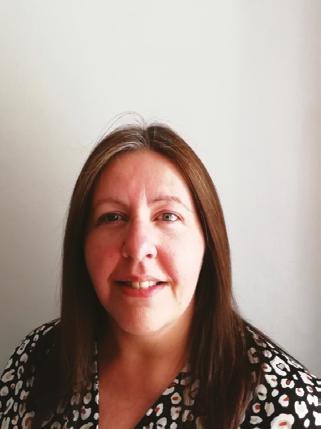
Our Social Welfare Specialist, Sam
Fitzgerald
Thanks to your generosity, we successfully raised an incredible £7,765.36. Managing life with MSA can lead to significant expenses, so the funds raised will enable our Social Welfare Specialist to provide crucial support for many of our members as they’re preparing for their future and navigating the complex world of welfare benefits. This is a lifeline to those facing the challenges of this progressive disease and your support has made a huge difference for those struggling most in the cost-of-living crisis. Thank you once again.
msa news
Support InvitationsGroup By Post
We want to ensure anyone who receives Support Group invitations by post would still like to do so. We are very happy to send Support Group invitations by post if it is easiest for you. Where possible we aim to communicate via e-mail as it can be more efficient for us as an organisation and is more environmentally friendly.
If you would like to change your preferences, please let us know by calling us on 0333 323 4591 or e-mailing us at support@msatrust.org.uk.
msa news
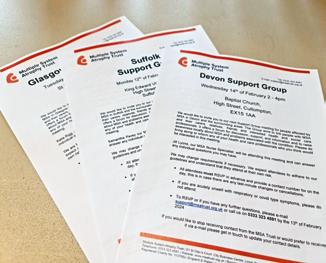
www.msatrust.org.uk | 05
NEWS ROUNDUP A SUMMARY OF THE LATEST MSA NEWS
Carers Fatigue
In our previous edition we looked at fatigue affecting people with MSA. This companion article looks at carers, as we know caring for someone with MSA can be rewarding but can also be exhausting. Our MSA Health Care Specialists give some information below on carers fatigue and the support available.
As MSA progresses, your relationship with the person living with the condition may change, and so may your feelings. The person may not be able to communicate so easily as before and this can add to fatigue and cause frustration for you both. You may experience feelings of loss and sadness as you try to adjust to the situation.
These feelings are perfectly normal. Our recent MSA Needs survey indicated that many carers experienced fatigue to some degree. Carers often face physical and emotional challenges that can affect their health and wellbeing.

06 | msa news | Issue 69 SYMPTOMS CAUSES AND MANAGEMENT OF FATIGUE
What is carers fatigue?
Carers fatigue is a type of exhaustion that results from the demands of caring for someone with a progressive neurological condition like MSA. It can cause symptoms such as:
• Feeling tired, drained or overwhelmed
• Having trouble sleeping or concentrating
• Feeling irritable, anxious or depressed
• Losing interest in hobbies or social activities
• Having physical problems such as headaches, back pain or infections
• Feeling guilty, resentful or hopeless.
Carers fatigue can affect anyone who provides regular care for a family member or friend who has MSA.
What causes carers fatigue?
Carers fatigue can be caused by various factors, such as:
• Lack of sleep, rest or personal time
• Poor nutrition, hydration or exercise
• Emotional stress such as worry, grief or frustration
• Lack of support, recognition or appreciation
• High expectations, pressure or responsibility
• Difficulty coping with the changes or challenges of the illness
• Lack of control or choice over the situation.
How to manage carers fatigue?
Carers fatigue can be prevented or reduced by taking care of yourself and seeking help when needed. Here are some tips to cope:
• Get enough rest. Try to sleep at least seven hours a night and take a nap during the day if needed. Avoid caffeine, alcohol and nicotine before bedtime.
• Try to eat a healthy diet. This could include foods that are rich in protein, fibre, vitamins and minerals and trying to limit or avoid foods that are high in fat, sugar or salt. Drinking plenty of water and limiting your intake of alcohol or soft drinks can also help.
• Stay active. If possible, do some physical activity every day, such as walking, gardening or dancing. Exercise can boost your energy, mood and immune system. It can also help you relax and cope with stress.
• Seek support. Talk to someone you trust, such as a friend, family member or faith leader. People often want to help but don’t know how. Consider delegating a task or asking them to provide some companionship for the person you are caring for. This will allow you some time to relax.
• Perhaps consider joining a support group for carers. You can contact organisations that offer information and advice for carers, such as the Carers Trust or Carers UK. The MSA Trust holds a monthly Carers Coffee Morning which provides an opportunity to share concerns with others who understands the situation you are in.
• It may help to seek a professional counsellor and your GP may be able to refer you if you would like this. Do let them know how you are feeling so they can help.
• All carers have a legal right to a carers assessment from their local authority. This may be done by social services at the same time as a needs assessment for the person living with MSA. This provides an opportunity to discuss things that could help you balance caring with other aspects of your life and help reduce fatigue. Some GP practices now have a wellbeing role or social prescriber who can discuss your needs and offer some local support.
• Don’t try to do everything by yourself. Consider hiring a professional carer, take respite care support or access your local hospice day care. These can help to take a few hours off you each week, or longer if you need a break, whilst also supporting the person living with MSA.
• Try to make time for yourself and do things that make you happy. Pursue your hobbies, interests or passions. Spend time with people who make you laugh or inspire you. Treat yourself to something special, such as a massage, the cinema, a meal out or a coffee with a friend.
Carers fatigue is a common and serious problem that can affect both physical and mental health. However, you can prevent or reduce it by taking care of yourself and seeking help when needed. Please remember, you are not alone and you deserve to be happy and healthy. msa news
For further support contact our MSA Health Care Specialists, all of their details can be found on our website –www.msatrust.org.uk
www.msatrust.org.uk | 07 SYMPTOMS CAUSES AND MANAGEMENT OF FATIGUE
Denis O’Connor
Nicholas Hodges
Andrew Johnston
Henriette Shulungu
Paul O’Toole
Steve Burgwin
John Rowton
Trina Maltby
Allan Bridgewater
Colin Wilson
Marilyn Hackney
Andrew Baker
Gillian Evans
In Memory
Julie Brown
David Newton
Peter Rose
Jane Allard
John Springate
Trish Bainborough
Julian Lyne
Duncan Barnes
Bob Helman
Thomas Lochhead
Bill Knott
John Thompson
Neil Maxwell
Susan Burgess
William Burton
Christine Benson
Maureen Thorpe
Ian Mason
Eamonn Nott
Vanda Wellington
David Curtis
Stephen Jones
Mark Whitehead
Toby Campbell
Helen Hunt
Valerie Jolly
Catherine Catchpole
Ken White
Alan Collins
Simon Barr
Paul Shaw
Isobel Mcdonald
Richard Smith
George Hatchard
Robert Blackwell
Stanleigh Laws
Myra Morris
Sandra Crossley
Kenneth Dow

YOUR REGULAR SUPPORT CAN MAKE SUCH A DIFFERENCE
This year we anticipate a further increase in demand for our services, meaning your support could help now more than ever.
The MSA Trust works with SpeakUnique, to offer funding for members to record and create their own personalised voices. This allows our members to retain their identity even when speech may be no longer possible.
Many members have seen the value in this ‘free’ communication aid with a 21% increase in demand for voice banking requests in 2023.
“Excellent experience (of voice banking) and thank you as I might not have done it at all, or yet, if I had to pay. Glad I’ve done it last year.” –anonymous.
We also have a limited small grants scheme which we use to help our members who
are particularly struggling with the financial implications of MSA - such as purchasing mobility equipment, getting respite care or counselling. For more information on eligibility, please contact our MSA Social Welfare Specialist.
As we continue to face a cost-of-living crisis, there is, understandably, a significant increase in need for these types of grants. We would be so grateful if you can help us meet this need by making a regular contribution to the Trust.
You can now give regularly via Direct Debit. To set this up online visit - https://checkout. justgiving.com/g4om56y7ml
Please email Tanya at fundraising@msatrust.org.uk for more information or a paper mandate form. msa news
REMEMBERING THOSE WHO WE HAVE LOVED AND LOST
IN MEMORIAM 08 | msa news | Issue 69
Theravance Biopharma is researching the investigational drug, ampreloxetine, a once-daily tablet in development for treating symptomatic neurogenic orthostatic hypotension (nOH) in people with multiple system atrophy (MSA).
Symptomatic nOH is common in MSA, with symptoms such as dizziness, lightheadedness, and feeling faint affecting an estimated 4 out of 5 MSA patients. The research study is a Phase 3 clinical trial (CYPRESS) and is being conducted at clinical study sites worldwide, including in the United Kingdom.
Key eligibility criteria for the CYPRESS trial: at least 30 years of age symptoms related to nOH a diagnosis of MSA
Additional criteria will need to be met to qualify and a study doctor will explain these.
During CYPRESS’s 20-week treatment period, all participants receive the investigational drug during the study’s 12-week open-label period and then receive either placebo or the investigational drug during an 8-week doubleblinded period. This initial 20-week phase is followed by an optional 2-year long-term extension in which all participants will receive the investigational drug.
The purpose of this study is to look at whether an investigational drug works and how safe it is when taken over several months to treat symptomatic neurogenic orthostatic hypotension (symptomatic nOH) in people with multiple system atrophy (MSA). The primary assessments will determine whether the investigational drug can improve the symptoms of nOH.
To learn more about the CYPRESS trial, please visit www.clinicaltrials.gov/study/NCT05696717.

ADVERT
Where to go for What
There are a number of sources of support, advice and provision of aids and equipment that may be available to people affected by MSA. However, it can often feel daunting and confusing how to navigate these. This article aims to give a broad overview of services and how to access them.
Accessing services is not uniform across the UK and Ireland, so do contact your MSA Health Care Specialist for your area who will be able to assist you.
Everyone diagnosed with MSA will have a General Practitioner (GP) and should have been seen by a consultant to get their diagnosis. The consultant may discuss appropriate services but often it is the GP that needs to do the actual referrals. Ask for a copy of any letters following a consultant review so you know if the GP has been asked to make any referrals.
The GP
Your GP can refer you to all the therapy services, as well as the district nurse team and local hospice palliative care team. Some GPs have community matrons or specialist nurse services for their patients who have complex conditions. These services can provide care planning support, symptom management, prescribe medication, do blood tests, wound care, bladder and bowel management. They can also refer onto more specialist teams for example the bladder and bowel nurse service or tissue viability service, if required.
Neuro-rehab team
Most areas have neuro-rehab or therapy teams that GPs can refer to. These teams include physiotherapy (PT), occupational therapy (OT) and speech therapy (SLT) practitioners. If you have a Parkinson’s Nurse, they will be able to refer you to these teams too.
It can be confusing trying to work out which therapy service provides what. There can be overlap between PT and OT in some areas and between health provision of OT and social service provision.
Physiotherapists (PT’s)
Your PT will focus on exercises to stabilise or improve your mobility, breathing and posture. They assess and review these aspects of your needs as they change and will provide or advise on the aids and equipment to assist you to safely manage your mobility, posture and breathing.
Occupational Therapists (OT’s)
Your OT will assess how you manage your every day living needs and advise on techniques, strategies and aids to do things in a safer or simpler way e.g. getting up, washed, dressed, eating, drinking and environmental control systems. The OT reviews these needs as your condition changes.
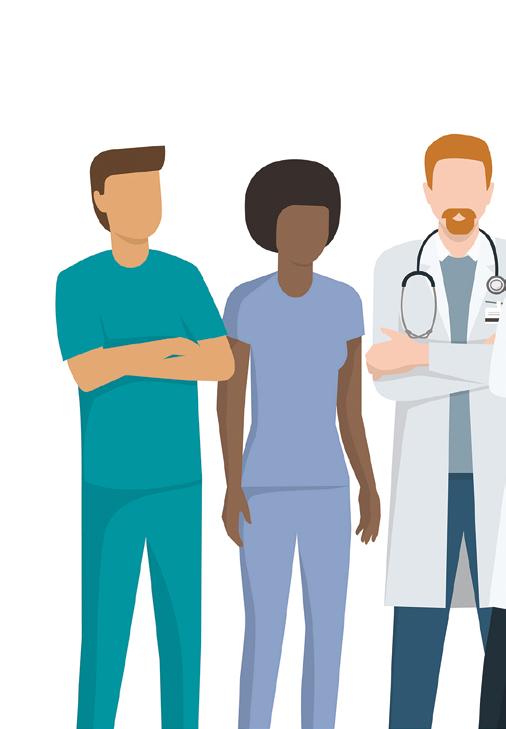
10 | msa news | Issue 69 SUPPORT FOR YOU SOURCES OF SUPPORT

Your OT can provide some aids and equipment and will advise on appropriate equipment to help you maintain some independence for as long as possible. NHS OT’s provide aids that are portable e.g. shower commode chairs, recliner chairs, toilet seats, portable hoists, moving and handling aids.
Social service OT’s advise on adaptations or equipment that fix to the fabric of the building e.g. lifts, grab rails, wet rooms and non-portable ramps.
Speech and Language Therapists (SLT’s)
Your SLT will assess changes to speech, provide exercises and techniques for maintaining and maximising your speech, and explore appropriate communication aids for potential future use. This may include Voice Banking. The SLT also plays a critical role in assessing your swallow, providing techniques to maintain a safe swallow and advising on any necessary adaptations to diet.
Your SLT may overlap with an NHS OT in relation to aids for eating and drinking and for access to environmental controls.
Local Authority
Apart from the therapy and health professionals mentioned, contact with the local authority social work service is essential. Your local council website will give you contact details for the Adult Social Care team to access the social services OT and a social worker.
Social Worker
The social worker provides assessment of your care needs and eligibility for funding toward care provision. They can assist you to find care providers for respite, residential or nursing home care, care within your own home or day care. They can also help with contact to the local provider for a community alarm service so you can call for help if needed e.g. if you had a fall.
Your primary carer is also entitled to a social work assessment of their needs. As part of this they can be registered for the emergency care card. This provides reassurance for carers that should they fall ill or have an accident, the ambulance and medical team will find the card in their purse/wallet and can contact social services to activate the emergency care cover. Carer’s can also be referred to the local carer’s resource centre for advice on benefit entitlements and local resources that support carers and people with disabilities in the area.

This is not an exhaustive list of all the health and care professionals that can provide support to people living with MSA and their loved ones. Often the roles highlighted here will be able to refer you to further support as needed. If you have any further questions please contact your MSA Health Care Specialistwww.msatrust.org.uk/support-for-you/hcps msa news
This article is a summary taken from our factsheet of the same name, which can be accessed herewww.msatrust.org.uk/support-for-you/factsheets
www.msatrust.org.uk
| 11 SUPPORT FOR YOU SOURCES OF SUPPORT

The Gut-Brain Connection
In this article, Samantha Pavey, one of our MSA Nurse Specialists, looks at gut health and the connection between our gut and our brain.
How does our digestive system work in health?
In brief, each part of our digestive system (also called the gastrointestinal tract or GI tract) helps to move food and liquid through our body where it is broken down into smaller parts. It then absorbs and moves nutrients to where they are
needed. The large intestine absorbs water and the waste products of digestion become stools. Nerves and hormones also help to control the digestive process.
A healthy gut is important to allow our body to take nutrients from food and drink to create energy, cell growth and cell repair. We all need a balanced diet of proteins, fats, carbohydrates and minerals.
People with MSA generally have a sluggish GI Tract, resulting in slower movement, which causes constipation. This can lead to tiredness, confusion, bloating and discomfort. It also means prescribed medications may not be absorbed properly, so potential benefits won’t be seen - particularly Parkinson’s medications.
12 | msa news | Issue 69 SYMPTOMS GUT HEALTH
What is gut flora?
Gut flora refers to the microorganisms, predominantly bacteria, that populate our intestines, more recently referred to as Microbiota.
Diet and lifestyle factors, including poor sleep quality, alcohol consumption and inactivity can harm your gut flora. Trying to live a healthy lifestyle including regular physical activity, reducing stress and eating a variety of whole foods, all contribute to ensuring healthy microbiota.
Research has revealed connections between the microbiota that live inside the gut and those that support the development and operation of our neurological systems. This complex system involves immunological, neural (relating to nerves) and chemical communication and is vital to good health.
Gut-Brain Axis
The Gut-Brain axis is a communication mechanism between the gut and the neurological system. The intestinal microbiota is kept healthy by constant communication between the nervous system,hormones and the immune system.
As well as trying to eat a wellbalanced whole food diet, many people are considering adding Pre or Probiotics to their diets to help improve their gut flora.
Prebiotics and Probiotics
Prebiotics are foods (typically high-fibre foods) that act as food for microbiota. Used with the intention of improving the balance of these microorganisms, they include whole grains, bananas, green vegetables, onions, garlic and soya beans.
Probiotics are foods or supplements that contain live microorganisms intended to
maintain or improve the ‘good’ bacteria or microbiota in the body. We can find probiotics in food such as yogurt, kimchi and sauerkraut. They may be used to treat diarrhoea or bloating.
Probiotics can have many positive effects on the body, including:
• Improving the body’s immune system
• Producing antimicrobial substances (active against microbes)
• Fermenting fibre in the diet to generate nutrients for the cells that line our intestines.
The link between probiotics and our mood isn’t clear, but experts have observed that certain foods can seem to boost mood. These include fruits and vegetables, whole grains, lean meat, fish, nuts and legumes, low-fat dairy and olive oil.
There is thought to be a connection between GI conditions and mental health. For example, a higher-than-average number of people with irritable bowel syndrome also develop depression and anxiety.
Microbiota may affect behaviour and emotion. For example, the probiotic bacteria, called Lactobacillus Rhamnosus, contains a neurotransmitter called GABA that helps regulate brain activity and can calm anxiety.
Psychological factors such as increased stress and depression can affect the movement of the GI tract. Whilst medication can improve GI tract movement, studies show that treating these psychological issues as well, is likely to lead to greater improvement. msa news
If you would like to do some further reading on this topic, these links may be of interest:
www.niddk.nih.gov/health-information/digestive-diseases/ digestive-system-how-it-works#howdoes
www.ncbi.nlm.nih.gov/pmc/articles/PMC4367209/
www.ncbi.nlm.nih.gov/pmc/articles/PMC10436500/
www.health.harvard.edu/diseases-and-conditions/the-gutbrain-connection
www.frontiersin.org/articles/10.3389/fnins.2023.1225875/full
www.medscape.com/viewarticle/we-know-healthy-gut-fightsinfection-new-study-reveals-how-2023a1000w2k
Our MSA Health Care Specialists are happy to talk to you further about gut health and can be contacted by telephone or emailwww.msatrust.org.uk/support-for-you/hcps
www.msatrust.org.uk | 13 SYMPTOMS GUT HEALTH
Remembering Alexa
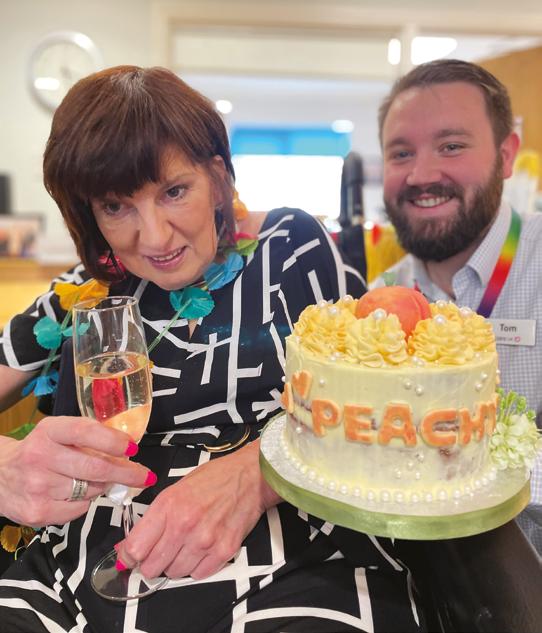
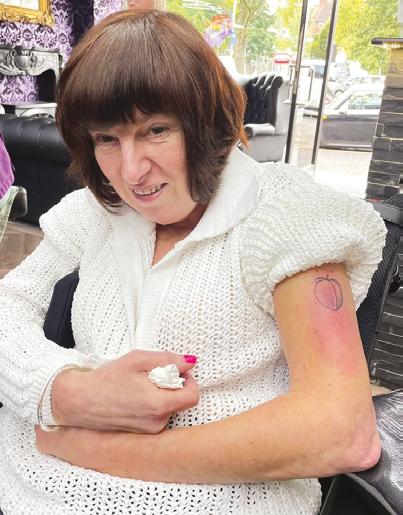
Following her very recent passing we wanted to highlight Alexa Peach, who can only be described as one of the most creative fundraisers who have ever supported the MSA Trust. Alexa was a resident at Care UK’s Bishops Manor in Sutton Coldfield, Birmingham. Following her diagnosis with MSA, with the help of her care team, she decided to fulfill her dream of getting her first tattoo - a peach design to pay homage to her name.
Alexa’s friends, family and over 10 members of the care home team joined forces for this fundraiser, all getting matching peach tattoos. ‘Vivid Ink Tattoo Studio’ kindly donated the time of one of their artists. Their collective efforts resulted in an impressive £2,795 being raised.
Alexa said “It was an honour to have played a part in the MSA Trust fundraiser and we all had such a great time together. It is important for me

to get the message out there that whilst MSA can be difficult to live with, there is also much fun to be had. I hope I can inspire others to do the same and have fun in the process”.
Thomas Bampfield, Home Manager “I am so proud of my team and Alexa for coming up with the idea, it was lovely to be part of such a creative fundraiser and one we will never forget, we hope to work with the MSA Trust again in the not-sodistant future”.
Her family, friends, and the entire Care UK Bishop’s Manor staff will fondly remember her as a force of positivity and optimism. msa news
14 | msa news | Issue 69 FUNDRAISING STARS A ROUND UP OF YOUR LATEST FUNDRAISING STORIES
MSA Awareness Week11th – 17th March 2024
As MSA Awareness Week approaches, there are numerous creative and impactful ways that you can help spread awareness of Multiple System Atrophy, while raising vital funds for the Trust. Here are some tips and ideas:
#1 Virtual Challenges: Encourage friends and family to participate in our 3,300 mile walking challenge during the month of March. Let’s collectively walk a mile for each individual living with MSA. Email fundraising@msatrust.org.uk for more information on how to get involved.

#3 Themed Events: Inject fun into fundraising by hosting MSA-themed events. Organise a ‘MSA Trivia Night’ where participants can contribute a donation to test their knowledge while supporting our cause. The Trust’s brand colour is orange and a unique twist could involve participating in orange-themed outfits or accessories to visually symbolise MSA Awareness.
#2 Social Media Campaigns: Share your personal story of life with MSA or consider a ‘Share in Orange’ challenge for your social media channels. It can be as simple as posting pictures wearing orange attire, then challenging friends to do the same in lieu of a donation to the Trust.
#4 MSA Trust Shop: Display our brand when you are out-and-about to showcase the MSA logo. We have car stickers, ribbons, pin badges and tote bags. All of these items are in our MSA Awareness Bundle available for purchase from our online shop - www.shop.msatrust.org.uk. Alternatively, call the office on 0333 323 4591 to place an order over the phone.

Join us at the 2024 London Marathon…
Be a vital part of our team and join us at the iconic London Marathon on Sunday 21st April, from 10am to 3pm! We are setting up two energetic cheer stations to support our incredible runners. Cheer Station 1 is located at mile 11 outside the Rotherhithe Tunnel, while Cheer Station 2 is positioned between mile 25 and 26 in Parliament Square. Your enthusiasm can make all the difference as we aim to create a lively atmosphere and inspire our runners to reach the finish line.
To get involved and for more information, please contact us at fundraising@msatrust.org.uk.
Let’s come together to make the London Marathon a memorable and uplifting experience for all of our incredible runners. msa news
| 15
www.msatrust.org.uk
FUNDRAISING STARS A ROUND UP OF YOUR LASTEST FUNDRAISING STORIES
Are you Getting Everything you are Entitled to?
To coincide with the launch of our new welfare benefits webpages, Sam Fitzgerald, our Social Welfare Specialist, highlights some of the financial support available. You can find more information by visiting: www.msatrust.org.uk/ financial-support.
All benefit amounts specified are for 2023/24. They are very likely to increase at the start of the new financial year (6th April 2024).
Disability benefits
Given that MSA is a progressive condition, it is likely that most people with MSA will qualify for some financial support based on personal care needs or any difficulties with mobility. Disability benefits are not means-tested and the amount you receive will depend upon how MSA affects you individually. Here is a brief outline of what you may be entitled to:
• Personal Independence Payment (or Adult Disability Payment in Scotland) – for those under state pension age. Considers your daily living/ personal care needs and any difficulties with mobility. Worth up to £691 every 4 weeks.
• Attendance Allowance – for those who have reached state pension age. Considers your personal care needs, unfortunately there is no mobility component. Worth up to £407 every 4 weeks.

SUPPORT FOR YOU FINANCIAL SUPPORT
16 | msa news | Issue 69
Carer’s Allowance
If the person you are caring for is receiving a disability benefit and you are providing at least 35 hours of care per week, you may be entitled to Carer’s Allowance which is worth £76.75 per week. You can be working and still claim Carer’s Allowance, however you must be earning £139 per week or less (after tax, National Insurance and any work-related expenses).
If you are a carer and receiving a state pension of more than £76.75 per week unfortunately you will not receive Carer’s Allowance, but it may still be worth putting in a claim as you may qualify for ‘an underlying entitlement to Carer’s Allowance’ which can lead to other benefits and support. Independent Age has produced a helpful factsheet – www.bit.ly/49AmPkZ.
If you are no longer able to work
You may be entitled to New Style Employment & Support Allowance (NS-ESA). NS-ESA is not meanstested, so it doesn’t matter if you have a partner who is working or you have savings, however you must have paid enough National Insurance in the last 2-3 years. Initially you would receive £84.80 per week, but this can increase to £129.50 per week following an assessment. You will need to provide a fit note from your GP. Income from an occupational or private pension can affect the amount of NS-ESA you receive.
If you are on a low income (even if you are working)
You may be eligible for Universal Credit (UC) if you (or your partner) are under state pension age. UC can include help towards rent as well as additional money if you are a carer. Working out whether you are entitled to UC and how much you might receive can be difficult as your individual circumstances are taken into account. It is important to seek specialist advice before claiming UC as even an unsuccessful application may affect other benefits you receive. If you believe you may be entitled to UC, please contact our Social Welfare Specialist for support.
Reducing your Council Tax
The Council Tax Disabled Band Reduction will reduce your council tax down by one band, making it cheaper every year. To be eligible one of the following must apply:
• Your home has a room other than a bathroom, kitchen or toilet which is used mainly for your needs; or
• Your home has an additional bathroom or kitchen which has been adapted to meet your needs; or
• You have extra space inside your home for the use of a wheelchair.
Republic of Ireland
Due to the differences in the welfare benefits system, we have a dedicated webpage for the Republic of Ireland - www.msatrust.org.uk/financial-support-roi Here is a brief outline of some of the financial support available:
• Disability Allowance – you must be substantially restricted in undertaking work. This is a mean-tested benefit which considers income from both you and your partner.
• Invalidity Pension – if you are no longer able to work because of your MSA. You must have paid enough social insurance contributions. Currently worth €203 per week.
• Partial Capacity Benefit – you can work part-time and still receive some support. An assessment determines your entitlement and how much support you may receive.
• Illness Benefit – if you cannot work and have paid enough social insurance contributions. It is paid for 1-2 years depending on your contribution record. The amount you receive is linked to your average weekly earnings.
• Supplementary Welfare Allowance – a meanstested benefit for those on a low income. You may be eligible even if you are working.
• Living Alone Increase – an extra payment (currently €9 per week) if you are receiving social welfare payments and live alone. It is also payable to people aged 66 and over if you have a state pension (contributory or non-contributory). msa news
If you need more information or support with benefit related issues, please get in touch with us. Our Social Welfare Specialist will be happy to help.
SUPPORT FOR YOU FINANCIAL SUPPORT
www.msatrust.org.uk | 17

Supporting and Helping Each Other
In their regular article Nicole and James, our Support Group Facilitators, pass on some of the tips shared by members at our Support Groups, both In-Person and Digital.
Some topics come up frequently at our Support Groups but every now and then something brand new is thrown into the mix. We were intrigued when one of our members asked about permanent and semipermanent makeup during one of our online sessions. Everyone has their own level of grooming preference and someone’s personal routine can involve many different aspects. Skincare can involve cleaning and moisturizing, haircare options can range from a morning brush to hair dye and a perm, and make up has a million different varieties. Everyone deserves to feel their best possible self and if it matters to you, maintaining this part of yourself can be a vital aspect of self-care. Learning to assist with someone else’s ‘beauty routine’ can be challenging, even with the best of intentions, so several members kindly shared ideas that had helped them.
To start with, tips for hair washing were discussed. If you are struggling with showers or finding it difficult to wash your hair in a bath there are a variety of ‘dry wash’ options available. While it may take a bit of practice many members found they helped allow them to get their hair washed in a less tiring manner. These can be used in a suitable sink or freestanding movable sinks are available such as the suggestions here:
www.bit.ly/3UBiKJd (Sally Beauty)
www.bit.ly/48pVEbS (Essential Aids)
It may also be worth considering using a local hairdresser that makes house calls. That way you can maintain your hair preferences from the comfort of your own home. See if any friends or local salons have local recommendations. If you choose to look online just
make sure they have a good track record of positive reviews.
Getting your nails done can be a relaxing treat and a great way to look after yourself. For example, a spa pedicure will often involve a relaxing foot massage and will neaten up any nails, as well as provide a coloured polish if desired. It should be noted this is not just for women, men are welcome at most salons to enjoy a manicure or pedicure (and can skip the polish if they prefer).
When it comes to permanent and semi-permanent makeup there are many different options and their suitability will greatly vary from person to person. The benefit is not having to apply a product daily which means you can look as though you have your makeup done, without the hassle. Some examples includeeyelash tinting where your eyelashes are dyed a darker colour to mimic the look of mascara, eyebrow tinting (or laminating) where the eyebrow is shaped and darkened and even permanent eyeliner. If you are considering any beauty treatment that involves needles make sure to go to a reputable, licensed beautician who does a tester first. You should also consider your own needs, for example if you struggle keeping your eyes open during the day you may struggle with some of the procedures.
msa news
If you have any questions please contact your MSA Healthcare Specialist.
18 | msa news | Issue 69
Research Update
Trial of a new medicine for MSA
The Horizon trial is a Phase 1/Phase 2 Study to assess the safety and tolerability of an experimental new treatment which may have disease modifying potential in the future.
It is a small study looking for a limited number of people who are at an early stage of the MSA journey. It is testing whether an injection of an experimental new medicine, given into the spine of people with MSA, is safe and able to be tolerated in people with MSA.
There is more information about the trial herewww.clinicaltrials.gov/study/NCT04165486.
If you would be interested in taking part, please speak to the consultant in charge of your MSA care, or to your MSA Nurse Specialist. msa news
Research Information Group
Anew MSA Trust Research Information Group has been set up to provide members with information about MSA research and to allow members to contribute to research processes.
The group met online for the first time in November 2023. Dr Viorica Chelban presented an ‘MSA information session’ and Dr Chris Kobylecki presented a ‘MSA trials update’. There was an opportunity for questions and discussion.
One attendee commented “We found it really informative and useful - it is so much easier to understand when things are explained in layman’s terms rather than trying to read scientific/medical papers!”
We hope to run the online group twice a year. If you would like to take part, please email support@msatrust.org.uk msa news
MSA Trust Research Funding
The latest MSA Trust research funding call opened in September 2023 and 13 applications were submitted. These were reviewed by members of the Scientific Advisory Panel (SAP) and eight project proposals were invited to move on to the full application stage. The SAP will meet again in May to decide on the successful grant awards. msa news
Can you help?
MSA researchers wish to gather evidence about the use of feeding tubes in MSA. They are inviting people diagnosed with MSA to complete a short, nine question online survey about swallowing issues and feeding tubes. Follow this link for more information and the survey link - www.bit.ly/3wfw4st Researchers are asking people with MSA to share their experience of orthostatic hypotension to support the development of future clinical guidance. To find out more email scott.johnstone@nhs.net and a member of the team will get back to you. There is more information on our website herewww.bit.ly/3SEfg5V. Both studies can be found herewww.msatrust.org.uk/open-msa-studies. msa news
Professor Gregor Wenning MD PhD MSc 1964-2024
Our deepest sympathies go to the family, friends and close working colleagues of Professor Gregor Wenning, Chair of the Innsbruck Medical University, Neurobiology Division, who passed away suddenly on the 11th February. We are extremely saddened to lose such a valued research colleague. A more detailed obituary will be shared on the MSA Trust website.
RESEARCH LATEST RESEARCH NEWS www.msatrust.org.uk | 19
SARAH’S WOOD
Sarah’s Wood, in the heart of Sherwood Forest, has become a special place for our MSA community. Our Path to a Cure runs through the Wood and is designed with engraved bricks laid in support, or in memory, of a loved one with MSA.
The path can be viewed at one of our several events held throughout the year and you are most welcome to join us for any of these.
Sarah’s Wood Summer Social
Our annual social event for the MSA community is fun for both adults and children! We will have children’s activities, Afternoon Tea and a lovely walk around Sarah’s Wood to see the Path to a Cure.
Date: Saturday 6th July 2024
Please visit our website for ticketswww.msatrust.org.uk/event/sarahs-woodsummer-social
Sarah’s Wood Tree Planting
This is an opportunity to contribute to our growing copse of oak trees at Thoresby Park, created to commemorate our founder, Sarah Matheson. On the day we will meet with foresters and plant multiple saplings. This can be full day-out with the family as it coincides with the Thoresby Winterfest Christmas Market.
Date: November 2024 (TBC)
There will be more information on our website later in the year - www.msatrust.org.uk/tree

For a minimum donation of £60 we are accepting engraved brick orders for the Path. You can order your brick using the form below (with a cheque issued to ‘MSA Trust’), visit www.msatrust.org.uk/path or call us on 0333 323 4591 to purchase your brick over the phone.
Name:.............................................................................................................................................................
Address:..........................................................................................................................................................
Telephone:..................................................
Email:.......................................................................................
Name on the brick (as you would like it to appear):
Donation for engraved brick:....................................
Additional donation:
Total payment enclosed:
Please return slip to MSA Trust, 51 St Olav’s Court, Lower Road, London SE16 2XB by Friday 12th April
























